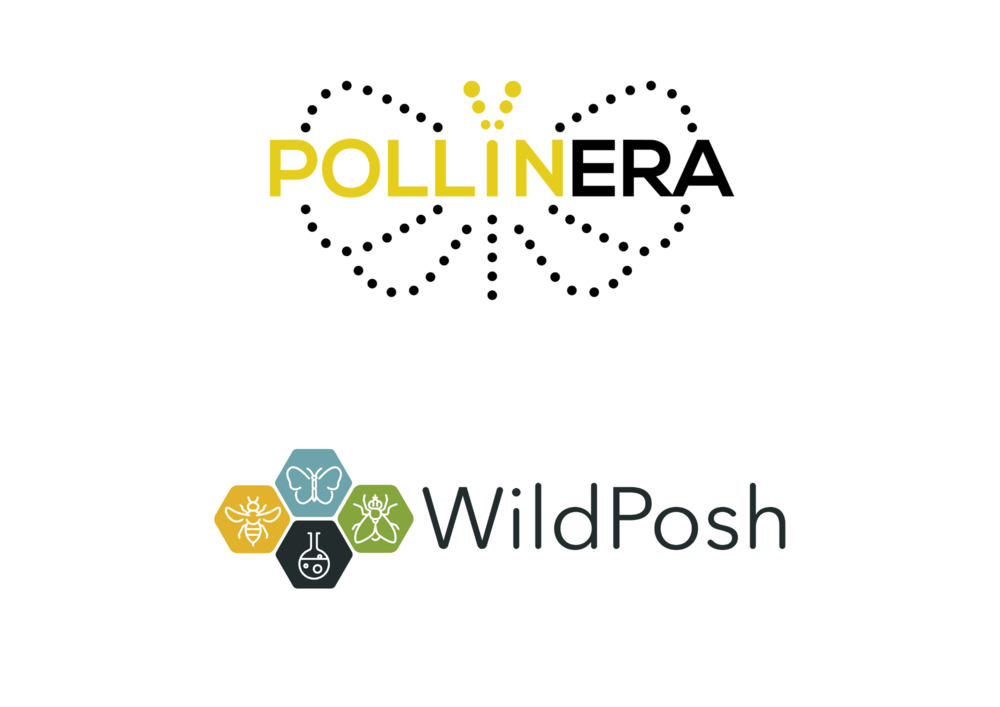pan-european assessment, monitoring, and mitigation of stressors on the health of bees
EC funds two new projects on environmental risk assessment
Towards a better understanding of exposure routes and toxicological and ecological impacts of chemical pollution on terrestrial biodiversity: EC funds two new projects on environmental risk assessment
Wild fauna and flora are facing variable and challenging environmental disturbances. One of the animal groups that is most impacted by these disturbances are pollinators, which face multiple threats, driven to a huge extent by the spread of anthropogenic chemicals, such as pesticides. In an effort to put biodiversity back on a path to recovery and preserve ecosystems and their services, the European Executive Agency (REA) has funded two new research projects under the Horizon Europe framework. Their shared ambition is to provide better understanding of the exposure routes and toxicological and ecological impacts of chemical pollution on terrestrial biodiversity and ecosystems.
PollinERA aims to reverse pollinator population declines and reduce the harmful impacts of pesticides through developing knowledge and protocols for a broad range of toxicological testing, feeding to in silico models (QSARS, toxicokinetic/toxicodynamic, and ALMaSS agent-based population simulations). Using a strong stakeholder co-development approach, these models will be combined in a One System framework taking a systems view on risk assessment and policy evaluation, including an international monitoring program developed within the project. The One System framework is based on EFSA’s system ERA view, expanding on the tools used for bees to include butterflies, moths and hoverflies and builds on the recent EFSA Roadmap for action on the environmental risk assessment of chemicals for insect pollinators (IPol‐ERA) project. The consortium partners are experts in the field needed for this development and are well-placed to facilitate the uptake of tools by European bodies to guarantee the project's future impact.
WildPosh is a multi-actor, transdisciplinary project whose overarching mission and ambition are to significantly improve the evaluation of risk to pesticide exposure of wild pollinators, and enhance the sustainable health of pollinators and pollination services in Europe. As chemical exposure varies geographically, across cropping systems, inside the crop system and among pollinators, the project will characterise exposure by doing fieldwork in four countries. These countries represent the four main climatic European regions, Mediterranean, Atlantic, Continental and Boreal climate in Germany, England, Estonia and Spain. WildPosh will also develop experiments in controlled conditions on different species of bees, syrphid flies, moths and butterflies, and collect in silico data on their traits and on toxicity of pesticides. The consortium brings extensive experience in Research and Innovation projects conducted within the Horizon programmes, as well as excellent scientific knowledge of chemistry, modelling, nutritional ecology, proteomics, environmental chemistry and nutritional biology.

In order to maximise impact and ensure sustainability of results, the two projects will unfold in close collaboration. Some collaboration mechanisms include joint communication activities and events, joint data management strategy and alignment of activities to solidify the quality of final outputs.
Both projects officially started in January 2024, when PollinERA held a kick-off meeting in Aarhus, Denmark and WildPosh in Mons, Belgium, hosted by their respective coordinating institutions. If you wish to keep up with the progress of WildPosh & PollinERA, feel free to follow them on these channels:
PollinERA website (coming April 2024) I PollinERA X profile I PollinERA LinkedIn profile
WildPosh website (coming March 2024) I WildPosh X profile I WildPosh LinkedIn profile | WildPosh Instagram profile
PollinERA receives funding from the European Union’s Horizon Europe research and innovation programme under grant agreement No.101135005. Views and opinions expressed are those of the author(s) only and do not necessarily reflect those of the European Union (EU) or the European Research Executive Agency (REA). Neither the EU nor REA can be held responsible for them.
WILDPOSH receives funding from the European Union’s Horizon Europe research and innovation programme under grant agreement No.101135238. Views and opinions expressed are those of the author(s) only and do not necessarily reflect those of the European Union or the European Commission. Neither the EU nor the EC can be held responsible for them.